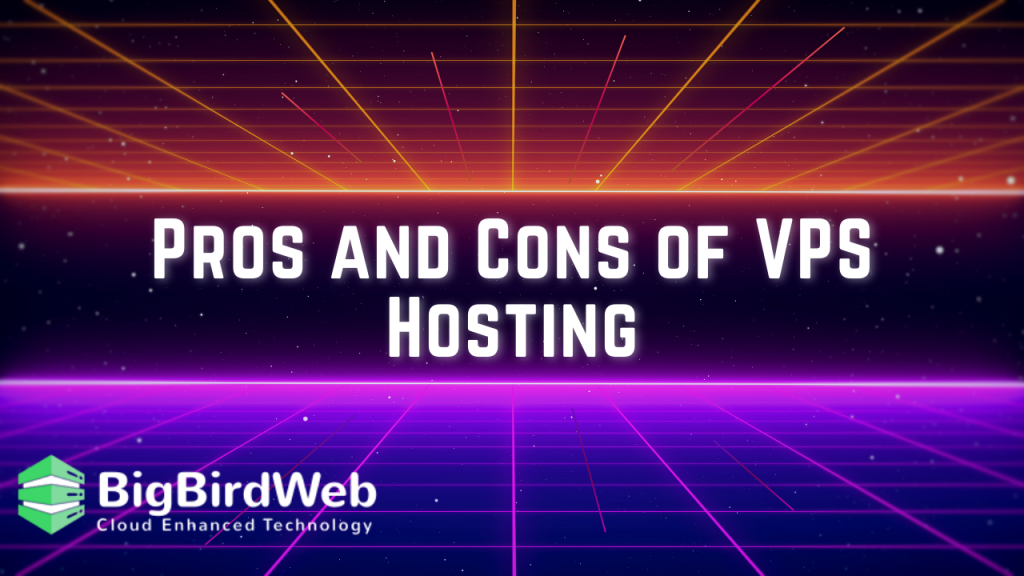In the realm of website hosting with VPS Hosting, there exists a spectrum of options catering to various needs and budgets. Cheap Shared hosting, the most economical choice, crams multiple websites onto a single physical server. While it’s a good starting point, it offers limited resources and control. On the other end lies dedicated hosting, where a single website gets an entire server, ideal for high-traffic sites but often prohibitively expensive.
VPS (Virtual Private Server) hosting emerges as a compelling middle ground. It carves a virtual section within a physical server, granting you a dedicated slice of resources like CPU, RAM, and storage. Imagine a shared apartment complex – shared hosting is like renting a room, while VPS hosting is akin to having your own private studio within the same building. This blog delves into the intricate world of VPS hosting, exploring its advantages and disadvantages to help you decide if it’s the perfect fit for your website.
Table of Contents
The Allure of VPS Hosting: Unparalleled Performance and Control

VPS hosting boasts a plethora of advantages that make it a compelling choice for websites yearning to break free from the constraints of shared hosting. Here’s a breakdown of the key benefits:
- Enhanced Performance: Unlike shared hosting, where resource allocation is dynamic and dependent on other websites, VPS hosting guarantees a fixed amount of CPU, RAM, and storage. This translates to improved website speed and stability, especially during traffic spikes. Imagine having a dedicated lane on a highway compared to jostling for space in rush hour traffic.
- Greater Control: VPS grants you root or administrative access to your virtual server. This empowers you to install custom software, configure security settings, and fine-tune server settings for optimal performance. Think of it like having your own apartment where you can decorate and manage things as you please.
- Scalability: As your website grows in traffic and complexity, you can seamlessly scale your VPS plan. Most providers offer the option to upgrade your resource allocation (CPU, RAM, storage) on the fly, ensuring your website has the power it needs to thrive. Imagine being able to easily expand your studio apartment into a larger one within the same building.
- Improved Security: With VPS hosting, your virtual server is isolated from other websites on the physical machine. This significantly reduces the risk of security breaches or performance issues caused by malicious activity on neighbouring websites. It’s like having your own secure space within a shared building.
- Cost-Effective: Compared to dedicated hosting, VPS offers a significantly more affordable way to gain dedicated resources and control. It’s the sweet spot between the budget-friendliness of shared hosting and the power of a dedicated server. For free web hosting solutions refer to the link.
The Other Side of the Coin: Potential Challenges of VPS Hosting
While VPS hosting offers undeniable advantages, it’s not without its challenges. Here are some aspects to consider:
- Increased Management Responsibility: The enhanced control offered by VPS comes with the responsibility of server management. This includes tasks like software installation, security updates, and performance monitoring. If you’re not comfortable with technical aspects, you might need to consider managed VPS plans where the provider handles these tasks for an additional fee.
- Higher Cost: Although more affordable than dedicated hosting, VPS hosting comes with a price tag steeper than shared hosting. This can be a deterrent for small websites with limited budgets that don’t require additional resources and control.
- Technical Knowledge: While not as demanding as managing a dedicated server, VPS does require some technical know-how. Familiarity with basic server administration tasks is beneficial for troubleshooting issues or optimizing performance.
Is VPS Hosting Right for You? Making an Informed Decision
VPS hosting is a powerful tool that bridges the gap between shared hosting and dedicated hosting. However, it’s not a one-size-fits-all solution. Here are some factors to ponder before making the switch:
- Website Traffic: If your website experiences frequent traffic spikes or receives a steady stream of visitors, VPS can ensure consistent performance.
- Resource Requirements: Does your website rely on resource-intensive applications like e-commerce platforms or complex databases? VPS provides the dedicated resources to handle such demands.
- Technical Expertise: Are you comfortable with basic server administration tasks, or would you prefer a managed VPS plan where the provider handles those aspects?
- Budget: Consider the cost implications of hosting compared to your current plan.
In Conclusion: Finding the Hosting Sweet Spot (Pros and Cons of VPS Hosting)
VPS hosting offers a potent blend of performance, control, and affordability, making it an ideal choice for websites that have outgrown shared hosting but don’t require the full power of a dedicated server. By carefully evaluating your website’s needs and
Bonus Content: Managed vs. Unmanaged VPS Hosting
Choosing between managed and unmanaged hosting hinges on your technical expertise and budget. Here’s a quick breakdown to help you decide:
- Managed VPS Hosting:
- Pros: Provider handles server management tasks like software installation, security updates, and performance monitoring. Ideal for users who lack technical knowledge or prefer a hands-off approach.
- Cons: Typically comes at a higher cost compared to unmanaged VPS plans.
- Pros: Provider handles server management tasks like software installation, security updates, and performance monitoring. Ideal for users who lack technical knowledge or prefer a hands-off approach.
- Unmanaged VPS Hosting:
- Pros: More affordable option, and offers greater control over your server environment.
- Cons: Requires technical knowledge to manage server tasks, which can be time-consuming for users without prior experience.
- Pros: More affordable option, and offers greater control over your server environment.
FAQs: Frequently Asked Questions About VPS Hosting
1. Is VPS hosting secure?
VPS offers enhanced security compared to shared hosting because your virtual server is isolated from others on the physical machine. This minimizes the risk of security breaches caused by malicious activity on neighbouring websites.
2. How much does VPS hosting cost?
VPS costs vary depending on the provider, resource allocation (CPU, RAM, storage), and managed vs. unmanaged options. Generally, it’s more expensive than shared hosting but significantly cheaper than dedicated hosting.
3. Do I need technical expertise for VPS hosting?
Unmanaged VPS hosting requires some technical knowledge for server management tasks. Managed VPS plans are available where the provider handles these aspects for an additional fee.
4. Can I upgrade my VPS plan if my website grows?
Absolutely! Most VPS providers offer flexible plans that allow you to seamlessly scale your resource allocation (CPU, RAM, storage) as your website’s needs evolve.
5. Is VPS hosting right for my website?
Consider your website’s traffic, resource requirements, technical expertise, and budget. Hosting is ideal for websites that have outgrown shared hosting but don’t require a dedicated server’s full power.
By understanding the pros and cons of VPS hosting, along with the additional insights from this bonus content and FAQ section, you can make an informed decision about whether it’s the perfect fit for your website’s growth journey.
